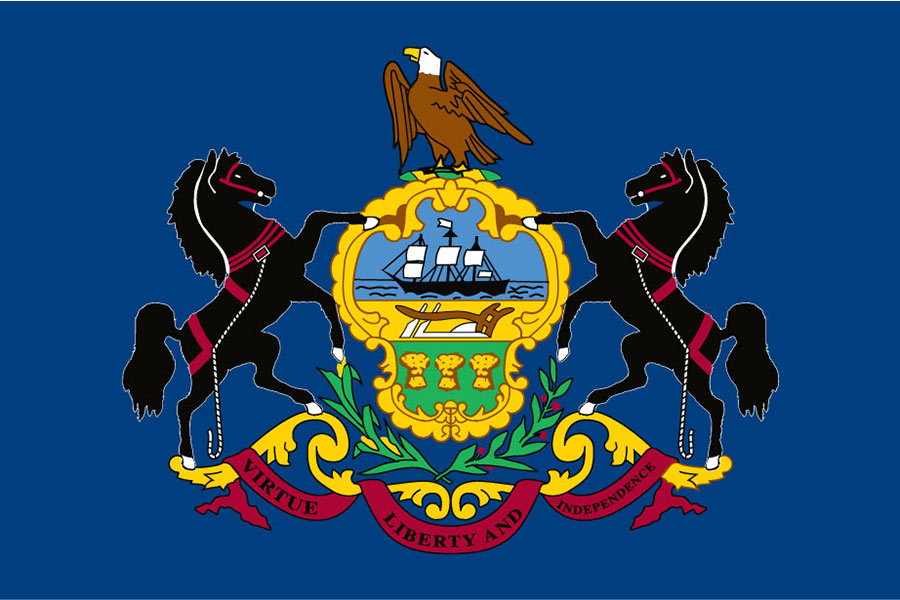As annual Pride celebrations begin, a welcomed summer tradition in many Pennsylvania communities, I again have to report that the state has yet to pass my legislation that will protect the rights of LGBT people by prohibiting discrimination in employment, housing and public accommodations.
This time of year always serves as a bittersweet reflection of the best the LGBT community has to offer us through the Pride festivities, juxtaposed with the harsh reality that, at a state level, we still lack full civil rights to protect against discrimination and prejudice.
For more than a decade, I have been the prime House sponsor of what is now the Pennsylvania Fairness Act (H.B. 1510/S.B. 974), which would prohibit discrimination on the basis of a person’s sexual orientation and gender identity. It is entirely consistent with the bans on discrimination based on religion and for other minorities, as well as the actions of 36 municipalities across the commonwealth, which have already extended civil-rights protections to the LGBT community.
The Fairness Act again is stuck in the muck of the House State Government Committee, whose chairman is a well-known opponent of equality and has so far bottled up the Fairness Act.
But we know that public opinion is in our favor: 72 percent of Pennsylvanians believe LGBT residents should be free from discrimination in employment, housing and public accommodation and more than two-thirds of the nation’s Fortune 500 companies have adopted LGBT protections. Indeed, our own local governments have acted while the commonwealth stands on the sidelines.
Over the years since this bill was first introduced, the attacks against it have taken many forms. Most recently, the attacks are packaged as “religious-freedom” protections or, worse, crude and meaningless names such as the “bathroom bill.” Regardless of how the opposition packages the attacks, they all share the singular aim of defeating LGBT civil rights at any cost.
One popular attack uses the so-called “religious-freedom” bills. Proponents assert that one’s “sincerely held religious beliefs” compel them to refuse service to a customer in the free market on the basis of sexual orientation or gender identity. This is a perverse interpretation of the First Amendment and one that now supports using the principles of religious freedom as license to discriminate.
These same religious-freedom arguments have been used to justify slavery, the marginalization of women, enforcement of Jim Crow laws and segregation. Now, opponents of the Fairness Act use religious freedom to deny the equal rights of the law to the LGBT community. It is as true then as it is now: Religious freedom is not a tool of discrimination.
Through egregious and affirmatively discriminatory actions like H.B. 2 in North Carolina, opponents of full equal rights have found their newest target: the transgender community. We’re now seeing nondiscrimination bills labeled as “bathroom bills” by people who would have us believe that there is some kind of correlation between equal access to public accommodations for transgender people and sexual assault or a lack of privacy.
Let’s be clear: The bathroom scare is a red-herring argument without one shred of real evidence. Nothing in the Fairness Act would change current law for crimes committed in a bathroom. If anyone enters a bathroom or locker room and commits a crime, that person will be charged with breaking the law. Any claim that our legislation changes the rules for bathrooms in a dangerous way is unequivocally false.
In addition, states that promote discrimination have seen economic backlashes — instead, we should move our economy forward with an expanded nondiscrimination law that would make Pennsylvania a more attractive and welcoming place for residents and businesses, like four of our six neighboring states and all other northeastern states.
Regardless of the exact nature of the attacks over the years, we know that opponents of the Pennsylvania Fairness Act have one simple goal: Use any means necessary to stop the movement for LGBT civil rights. In the face of that opposition, I remain committed to seeing the Fairness Act become law in Pennsylvania and for us to once and for all end the last vestige of legal discrimination remaining in the commonwealth.
If you want to help get the Fairness Act moving in Harrisburg, visit www.legis.state.pa.us and let your state representative and senator know you support it.

